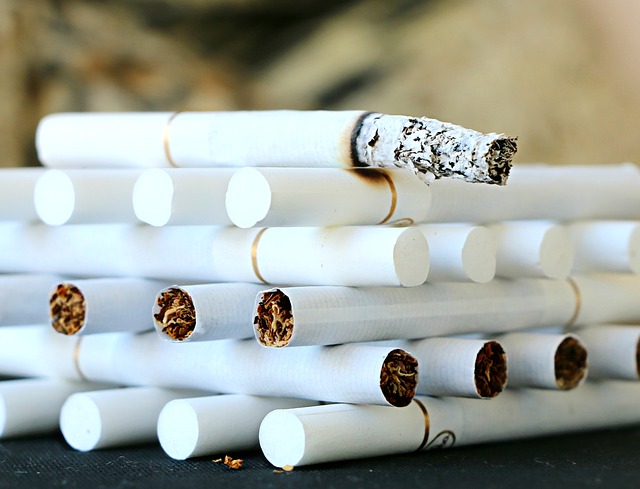Addiction is extremely common, and affects people from all walks of life. In fact, Harvard Medical School says that nearly one in 10 Americans is addicted to a substance like alcohol, tobacco, or prescription drugs.
The best CBD oil products for addictions depend on the addiction.
For smoking, we’d obviously recommend a vaping product. Your most effective approach would be vaping plus an oral tincture dosage.
Table of Contents
- Quitting Cigarettes – CBD for Smokers
- Alcoholism and CBD
- Fighting the Opioid Epidemic – CBD for Addicts
The Best Overall CBD Product for Addiction: We recommend a high potency CBD tincture like Joy Organics.
If you’re not into vaping, or don’t have a smoking addiction, almost all other addictions would be best aided by CBD using an oral dosage, taking it like a daily supplement.

Addiction works by triggering the pleasure and reward mechanisms in the brain. Over time, this creates the compulsion to seek out the addictive substance. Then, when a person stops using it, they experience painful withdrawal symptoms.
Cannabidiol, or CBD, is a natural substance derived from the cannabis plant – and it holds a great deal of promise for preventing and treating addiction.
Recent studies show that CBD may help by:
- Reducing cravings
- Helping to manage withdrawal symptoms
- Addressing the symptoms or conditions that contribute to substance abuse
- Increasing overall well-being, making people less likely to seek out addictive substances
Quitting Cigarettes – CBD for Smokers
Smoking is the most preventable cause of death in the United States. It can lead to lung cancer, heart disease, strokes, and other deadly conditions. Despite the risks, smoking is difficult to quit. This is because of nicotine, a highly addictive substance found in tobacco. It causes a temporary feeling of relaxation, followed almost immediately by withdrawal symptoms.
In one study, smokers who wanted to quit were given inhalers with either CBD or a placebo. When they felt the urge to smoke, the smokers used the inhalers. Over the week-long study, the CBD group was able to reduce the number of cigarettes consumed by about 40 percent. The placebo group, on the other hand, had no reduction in the number of cigarettes smoked.
Alcoholism and CBD
Alcohol is widely available and socially acceptable, making it easy to over-indulge. But from motor vehicle accidents to liver disease, the risks associated with alcohol abuse can affect every part of a person’s life.
Preclinical trials suggest that CBD may be useful in treating alcoholism. CBD’s neuroprotective properties may help protect the brain from alcohol-related damage, which can cause significant cognitive impairment for heavy drinkers. CBD may also help to reduce alcohol consumption and prevent relapse.
Beyond treating people who are already addicted to alcohol, CBD could also help with some of the conditions that lead people to self-medicate. Safely addressing mental health issues like depression, psychosis and anxiety disorders may make people much less likely to abuse alcohol.
Fighting the Opioid Epidemic – CBD for Addicts
The National Institute on Drug Abuse (NIDA) reports that opioid overdoses take the lives of 90 Americans every day, and cannabis may be one of the keys to battling the opioid epidemic. States that permit medical cannabis have 24 percent fewer deaths by opioid overdose than states that do not. Cannabis may also support people who are trying to quit using opioids by helping with withdrawal symptoms.
CBD in particular has been shown to reduce drug-seeking behavior. This could be because CBD provides relief for symptoms that introduce people to using opioids, like chronic pain. Unlike opioid painkillers, though, CBD helps people to manage pain without getting them high.
CBD can help fight addiction by addressing every point in the addiction cycle. It may help to prevent addiction by providing relief for many of the conditions that make people vulnerable to addiction, like pain, insomnia and mood disorders. For those who are already suffering from addiction, it may help reduce cravings and reduce withdrawal symptoms. And for those who have quit, it may support their healing by reducing the likelihood of relapse.
